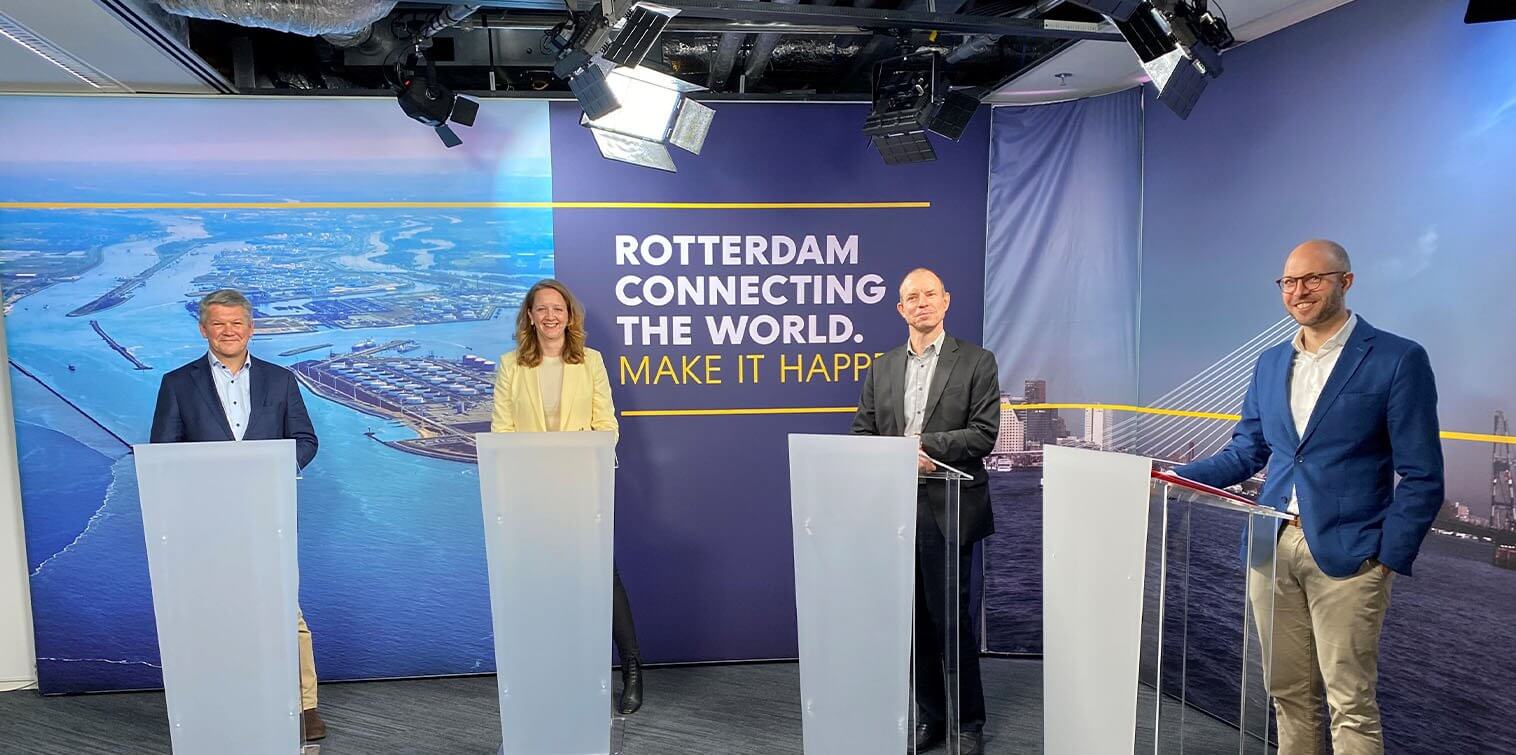Learn more about autonomous shipping in the Rotterdam region.
Legal perspective
Professor Frank Stevens kicked off by explaining that autonomy can be defined in different ways for different levels. It has everything to do with the level of human involvement. Autonomous shipping is currently in the physical testing and experimental phase. Stevens champions the idea of creating a legal testing ground for autonomous shipping and thankfully, the first steps are now being put in place to allow such experimentation and testing in the Netherlands.
Frank Stevens and Willemijn Putz agreed that conventions and principles of liability can be translated to autonomous shipping without too much difficulty. According to Putz, although current (international) legislation would seem to be reasonably adequate, it will be interesting to see what happens when the first claims are filed.
Stevens also believed that cyber security issues should be top-of-mind in the early design stages for autonomous vessels and systems. This step is crucial since in matters of liability, legal experts tend to look more closely at what measures were introduced to prevent cyber risks at the design stage. This is particularly so in the case of autonomous digital systems.
As far as this topic was concerned, Charlie Weatherill wondered how reduction of crew induced risks would play out in ten years in relation to cyber security risks and whether these risks would be smaller than the risks currently being posed on manned seagoing vessels today.
Ample capital is available
It is common practice for financing decisions to take into account insurances, operational aspects and track records for vessel types. Moreover, banks value assets to structure a loan. When it comes to new types of infrastructure, such as autonomous vessels, a great deal of uncertainty abounds, so it is difficult to calculate risk and financing models.
Michael de Visser explained that whilst ample capital is available, financiers are only willing to invest if the risks are transparent. As this is not currently the case, he sees a role set aside for government backed finance. On the other hand, he was keen to emphasize that in some other industries, risk-tolerant players have taken their chances and come out on top, TESLA being the best example.
Sense of urgency
The speed and level of success for realizing autonomous shipping would seem to be dependent, at least in part, on a sense of urgency being shown amongst traders and charterers. Michael de Visser believed they will have to acknowledge the advantage of autonomous shipping, otherwise things will be difficult. These players focus mainly on moving cargo from A to B, whilst maximizing their (cost-)efficiencies, being less interested in how the cargo is transported. In other words: is there really a need for autonomous shipping? Successful innovation and collaboration in autonomous shipping therefore requires a sense of urgency, in much the same way as with emission-free shipping.
Interested in the ins and outs?
Watch the Masterclass recording and inspire yourself!
